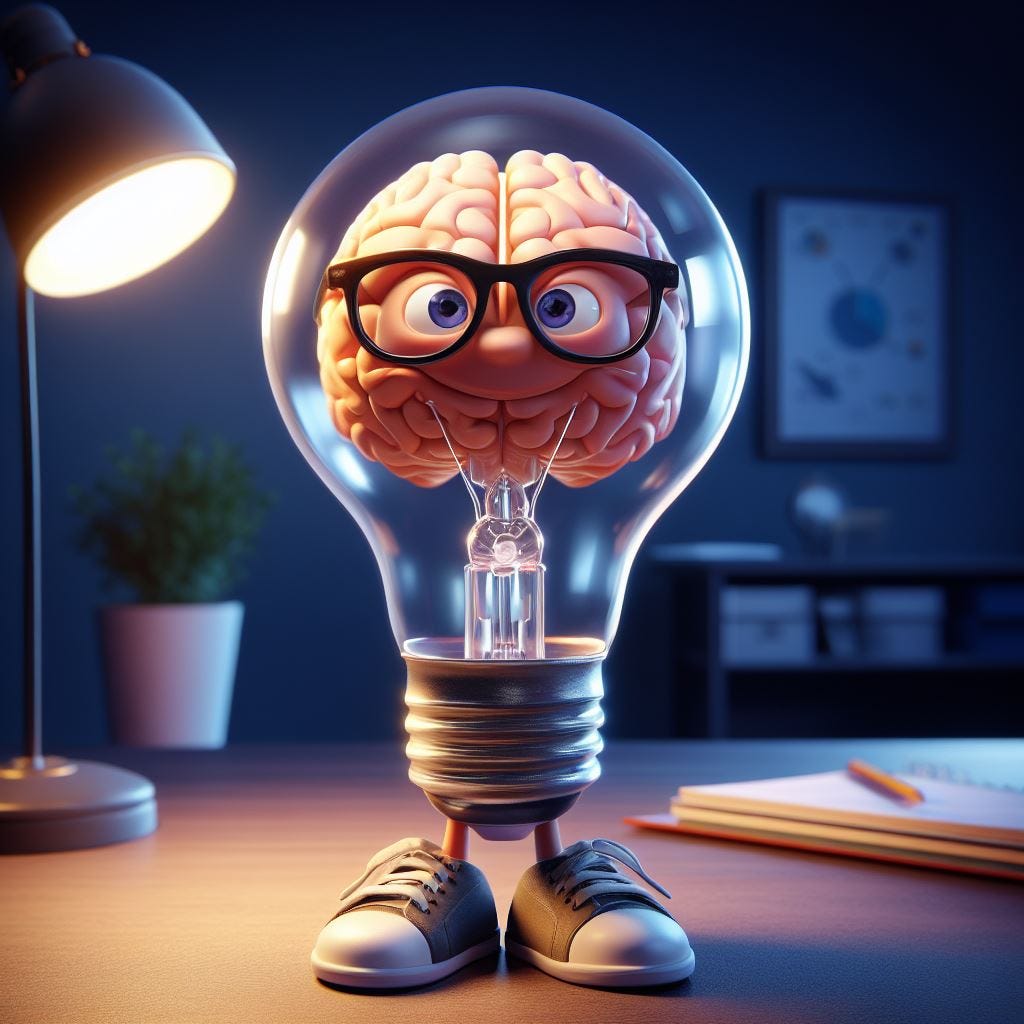This is Why I Will Never Betray My Intuition
More Than Just a Hunch - The Statistical Superpower Hidden in Your Mind
If I had to pick only one thing about myself to keep, it would be my intuition. Some folks see it as just a hunch, but I think there's more to it. I think it's statistical in nature – a subconscious form of computation based on our unique experiences, training, and education, which allows us to make judgments and predictions rapidly, without necessarily being able to consciously explain how we arrived at our conclusions.
Like our brain is taking all of the data we've acquired and subconsciously running calculations based on that data to generate the intuitive "feeling" we get. It's almost like intuition is a form of pattern recognition taken to a really high level, in a way that we can't easily put into words. A seasoned doc will often have better intuition than a newbie. Developing this intuition is a crucial part of becoming an expert in any field, whether that's a doctor, an artist, a chef, or an athlete.
If done right it's a powerful tool for making decisions and solving problems. It's more like a kind of rapid, subconscious data analysis.
As someone with a generalist lens, my intuition is the muscle I flex the most. It can be trained and strengthened over time. It's something I'd never go against. It's a crucial tool for me. It helps me synthesize information and draw connections from many different fields and sources. My life's journey has been about training my brain to see the broader picture, and betraying my intuition is something I'll never do.
The more you expose yourself to different disciplines (from academics to art to athletics), the more "data" your intuition has to work with and the stronger it becomes. Intuition is a skill that requires a broad base of experiences to be truly powerful. The broader the base, the taller the intuition tree.
There's a heavy reliance on data these days, probably because it gives people who lack imagination, creativity, and intuition a sense of intellectual superiority. Data has its place, but that place is primarily in science. If everyone waited for data to innovate, we'd never get anywhere new because there's no data about stuff that doesn't exist yet. And if you're thinking of leveraging data to alter human behavior, well, good luck with that! Until the behavior changes, the data remains unchanged.
There's a fundamental limitation to what data can tell us because data is always rooted in the past and in things that already exist. True innovation comes from looking beyond the data, beyond what's already known and what already exists. That's why economics isn't a "hard science" like physics or chemistry because it deals with human behavior, which is inherently unpredictable.
Success in any field outside the strict domain of science demands a robust intuition. Even in science, most breakthroughs have been a product of intuition. It's your intuition that nudges you in the right direction, and then you employ the tools of STEM to unravel the issues at hand.
What sets a great scientist apart from a good one is often their intuition.
Intuition is like the compass, while the scientific method is like the map. Without a compass, you can have a very detailed map, but you won't know which way to go. Without a map, you can walk in the right direction, but you might not know where you're going.
So intuition is the thing that drives discovery, innovation, and invention, and science is the thing that helps us turn those ideas into something concrete.
Does that mean intuition is more important than logic?
Perhaps a better way to think about intuition and logic isn't as a competition, but rather as a collaboration. They're not opponents, they're partners. One provides the inspiration, and the other provides the proof.
Intuition without logic is just guesswork, and logic without intuition is like a computer program that has no inputs. The most successful people in any field are the ones who have a healthy balance of both. Intuition gives you the big-picture view and helps you ask the right questions, while logic helps you answer those questions and verify your intuition.
You might say that intuition and logic are like yin and yang!
One without the other is like a bird with one wing. You can't fly if you only have one wing. The history of science is full of stories of people who had brilliant intuitions that flew in the face of conventional wisdom, but who were then able to prove their ideas with logic and evidence. Think about Einstein and his theory of relativity, for example. More on that in a future post.






More the knowledge, better the intuition.